Search
LeftSideCut (3776 KP) rated Black Christmas (2019) in Movies
Dec 17, 2020
Fuck I really hated this.
Ignoring the politics side for a moment - it's a hugely poor horror film. It's devoid of any scares, it cuts away from any gore, and perhaps worst of all, it has the audacity to be called "Black Christmas" - which is quite simply one of the best slashers ever made.
Did this film even start as a Black Christmas remake? It basically goes: Men are shit - some people get killed offscreen - weird supernatural twist - oh shit, it's Black Christmas, better throw in a glass unicorn sculpture.
The supernatural part is something I'm not mad at actually - at least it tried something different rather than being a straight re tread.
Then of course, there's the aformentioned politics, which is what most people's issue is with this film. Feminist messages in horror movies can be hugely effective - the original Black Christmas does it well for example - but I can't help but feel that the message this version putting out there is severely mishandled. As a guy, I am willing to hear how I'm wrong in this instance, but it feels sooooo over the top with what it's trying to do. It's not too hard to be on board with for the most part, but the final scenes really go for it - I mean the lines "you're insane!" "No, we're just men" - really!? It just feels very in the nose to me.
Other than that, this film is turd. It gets a star for Imogen Poots and the creative snow angel death scene at the start. Watch the original instead.
Ignoring the politics side for a moment - it's a hugely poor horror film. It's devoid of any scares, it cuts away from any gore, and perhaps worst of all, it has the audacity to be called "Black Christmas" - which is quite simply one of the best slashers ever made.
Did this film even start as a Black Christmas remake? It basically goes: Men are shit - some people get killed offscreen - weird supernatural twist - oh shit, it's Black Christmas, better throw in a glass unicorn sculpture.
The supernatural part is something I'm not mad at actually - at least it tried something different rather than being a straight re tread.
Then of course, there's the aformentioned politics, which is what most people's issue is with this film. Feminist messages in horror movies can be hugely effective - the original Black Christmas does it well for example - but I can't help but feel that the message this version putting out there is severely mishandled. As a guy, I am willing to hear how I'm wrong in this instance, but it feels sooooo over the top with what it's trying to do. It's not too hard to be on board with for the most part, but the final scenes really go for it - I mean the lines "you're insane!" "No, we're just men" - really!? It just feels very in the nose to me.
Other than that, this film is turd. It gets a star for Imogen Poots and the creative snow angel death scene at the start. Watch the original instead.
Entertaining and powerful
I was a little worried about reading this book as I was concerned about it being a little preachy, however I’m so glad that my concerns were completely unwarranted.
This is a very powerful, moving and motivational book. It promotes powerful and independent women without becoming too preachy or overpoweringly feminist, yet with a heartwarming, interesting and relatable story. There are aspects of all 3 of the main characters that I identified with, and no doubt most other women will too. Their stories and lives made me laugh and cry throughout the entire book, and I really struggled to put this down. I also thought I knew where this story was going until a major twist over two thirds of the way through completely shocked me. I never saw it coming and I loved this, along with the ending in general which didn’t play out in exactly the way you’d expect. I’ve seen Dawn O Porter’s documentaries in the past but wasn’t too sure what I’d make of her writing, however this is beautifully written. She’s come up with some human, deep and maybe slightly crazy characters that are all endearing in their own ways and intertwined their stories into something immensely entertaining. It’s also made me really think about my own life and make me feel better about things that have been getting me down, and I’d really encourage any woman to read this who might be in need of a pick me up. I will definitely be reading more of Dawn O Porter’s work after this.
This is a very powerful, moving and motivational book. It promotes powerful and independent women without becoming too preachy or overpoweringly feminist, yet with a heartwarming, interesting and relatable story. There are aspects of all 3 of the main characters that I identified with, and no doubt most other women will too. Their stories and lives made me laugh and cry throughout the entire book, and I really struggled to put this down. I also thought I knew where this story was going until a major twist over two thirds of the way through completely shocked me. I never saw it coming and I loved this, along with the ending in general which didn’t play out in exactly the way you’d expect. I’ve seen Dawn O Porter’s documentaries in the past but wasn’t too sure what I’d make of her writing, however this is beautifully written. She’s come up with some human, deep and maybe slightly crazy characters that are all endearing in their own ways and intertwined their stories into something immensely entertaining. It’s also made me really think about my own life and make me feel better about things that have been getting me down, and I’d really encourage any woman to read this who might be in need of a pick me up. I will definitely be reading more of Dawn O Porter’s work after this.
Jamie (131 KP) rated Nasty Women in Books
May 24, 2017
A timely collection of personal and political essays
It was really cool to get to see the world through the eyes of women coming from walks of life entirely removed from my own. There were many whose struggles I couldn’t even begin to imagine dealing with, while others I found comfort that I wasn’t alone in the issues that I have faced. The anthology really does cover a wide range of topics by authors from drastically different backgrounds.
The one essay that stood out the most to me was “Choices” by Rowan C. Clarke, which discussed the author’s difficult relationship with her mother and that never ending struggle to please. While the underlying messages in all of the stories were political and feminist, they were also very personal and down to earth which is what made this collection pretty emotional.
I did have a few issues with the anthology, however, that I need to address. The first was that the quality of each essay varied pretty wildly. The version I read was an ARC so it’s difficult for me to judge the final product, but there were several that weren’t well structured or were rife with grammatical and formatting errors. There were citations (I love citations!) that weren’t formatted all that well for my ebook version (cutting into the middle of paragraphs) that perhaps would’ve been better placed at the end. As for the actual content, most were incredibly well written and heartfelt, a few felt like angry rants that were more alienating than empowering, then there was one that just felt stiff and spent more time with the preface rather than the story.
While on the subject of alienation, despite the rather diverse sets of authors and essays, I feel like there were some missing pieces still. It’s obvious from the title what many of the authors thought about the last election and I didn’t like how black and white things were with barely any room in-between. In cases like this, I’m sure most of the readers would be those looking for confirmation of beliefs that they already share, which is fine except that it closes the door on discussion with the other side which is truly unfortunate.
Don’t get me wrong, I think that what was already here was pretty great. I see what they were going for and I appreciated it. I love to see discussion about politics and social issues, but I worry when the tone leans too far toward one extreme it only invites backlash from the other extreme. It’s a difficult balancing act between maintaining one’s own core beliefs while also trying to open things up to the other side so that perhaps they could engage in the conversation and, ideally, listen and have their own perceptions changed.
But I digress, despite the complaints I had about the book, I found it to be a pretty quick and enjoyable read. It gives a voice to groups of women that aren’t often heard in the greater narrative of the feminist movement. The experiences of these many women enrich that narrative and there’s a lot we can all learn from each other especially in these troubling times.
The one essay that stood out the most to me was “Choices” by Rowan C. Clarke, which discussed the author’s difficult relationship with her mother and that never ending struggle to please. While the underlying messages in all of the stories were political and feminist, they were also very personal and down to earth which is what made this collection pretty emotional.
I did have a few issues with the anthology, however, that I need to address. The first was that the quality of each essay varied pretty wildly. The version I read was an ARC so it’s difficult for me to judge the final product, but there were several that weren’t well structured or were rife with grammatical and formatting errors. There were citations (I love citations!) that weren’t formatted all that well for my ebook version (cutting into the middle of paragraphs) that perhaps would’ve been better placed at the end. As for the actual content, most were incredibly well written and heartfelt, a few felt like angry rants that were more alienating than empowering, then there was one that just felt stiff and spent more time with the preface rather than the story.
While on the subject of alienation, despite the rather diverse sets of authors and essays, I feel like there were some missing pieces still. It’s obvious from the title what many of the authors thought about the last election and I didn’t like how black and white things were with barely any room in-between. In cases like this, I’m sure most of the readers would be those looking for confirmation of beliefs that they already share, which is fine except that it closes the door on discussion with the other side which is truly unfortunate.
Don’t get me wrong, I think that what was already here was pretty great. I see what they were going for and I appreciated it. I love to see discussion about politics and social issues, but I worry when the tone leans too far toward one extreme it only invites backlash from the other extreme. It’s a difficult balancing act between maintaining one’s own core beliefs while also trying to open things up to the other side so that perhaps they could engage in the conversation and, ideally, listen and have their own perceptions changed.
But I digress, despite the complaints I had about the book, I found it to be a pretty quick and enjoyable read. It gives a voice to groups of women that aren’t often heard in the greater narrative of the feminist movement. The experiences of these many women enrich that narrative and there’s a lot we can all learn from each other especially in these troubling times.
<i>I received this book for free through Goodreads First Reads.</i>
“Violence always gets results.” But at what cost? Victoria Sadler’s dystopian novel <i>Darkness</i> explores and all too realistic scenario set in a not so distant future. The western world has fallen due to war and economic collapse. London has become a ghost city due to the death of thousands of people. Those not killed by bombs or deadly virus succumb to suicide or death by natural causes – if the cold and starvation can be labeled natural.
Laura Lewis is the sole survivor in her block of flats and now needs to make her way through the dangerous streets to St Paul’s Cathedral where what remains of the State will provide her with safety. However before she reaches her final destination she is ambushed by an army of women, a threat to the nation, known as RAZR – Resistance Against State Reformation. Jane, the leader of the resistance, believes she has saved Laura from a fate worse than death. But, as Laura discovers, RAZR may result in an even crueler future.
RAZR was born from a hatred of men, a guerilla feminist movement seizing the opportunity to obliterate the patriarchal society. Since the beginning of time men have oppressed women, regarding them as possessions with which they can do as they please. Despite the apparent equality achieved through past protests, the government, i.e. men, still control the lives of women. RAZR particularly focus on women’s rights to their own body, and are angry at the State’s current use for women: to procreate.
<i>Darkness</i> is full of radical violence, often ending in the mass death of male soldiers. With barely a break to take a breath, the narrative goes from one action scene to the next, heightening the excitement as the novel reaches its climax. As the reader learns more about RAZR and the State, opinions are constantly changed. Who is good, who is bad? Who can Laura trust? Then, to confuse things even more, Laura is not who she initially appears to be at all.
The amount of violence in this novel is disturbing, particularly as the majority of deaths are caused without guilty conscience. <i>Darkness</i> highlights the horrors of war and the wild nature of humanity. Without men and women being able to live in harmony there is no peace, on the other hand, complete equality is not possible. Furthermore, are RAZR feminists or terrorists? It is an obvious fact that the human race cannot survive with merely one gender of the species, so is RAZR doing more harm than good by fatally punishing all men?
Overall, <i>Darkness</i> poses more questions than it answers, yet it is such a griping novel. Women, particularly feminists will enjoy the powerful messages expressed by RAZR, but equally, readers will understand Laura’s hesitation. With so many plot twists to get your head around, you will never get bored of this story. With such an ambiguous ending, it is unclear whether <i>Darkness</i> will remain a standalone novel, or be continued with a sequel. Whatever the case, it will be interesting to read what the feminist, Victoria Sadler, comes up with next.
“Violence always gets results.” But at what cost? Victoria Sadler’s dystopian novel <i>Darkness</i> explores and all too realistic scenario set in a not so distant future. The western world has fallen due to war and economic collapse. London has become a ghost city due to the death of thousands of people. Those not killed by bombs or deadly virus succumb to suicide or death by natural causes – if the cold and starvation can be labeled natural.
Laura Lewis is the sole survivor in her block of flats and now needs to make her way through the dangerous streets to St Paul’s Cathedral where what remains of the State will provide her with safety. However before she reaches her final destination she is ambushed by an army of women, a threat to the nation, known as RAZR – Resistance Against State Reformation. Jane, the leader of the resistance, believes she has saved Laura from a fate worse than death. But, as Laura discovers, RAZR may result in an even crueler future.
RAZR was born from a hatred of men, a guerilla feminist movement seizing the opportunity to obliterate the patriarchal society. Since the beginning of time men have oppressed women, regarding them as possessions with which they can do as they please. Despite the apparent equality achieved through past protests, the government, i.e. men, still control the lives of women. RAZR particularly focus on women’s rights to their own body, and are angry at the State’s current use for women: to procreate.
<i>Darkness</i> is full of radical violence, often ending in the mass death of male soldiers. With barely a break to take a breath, the narrative goes from one action scene to the next, heightening the excitement as the novel reaches its climax. As the reader learns more about RAZR and the State, opinions are constantly changed. Who is good, who is bad? Who can Laura trust? Then, to confuse things even more, Laura is not who she initially appears to be at all.
The amount of violence in this novel is disturbing, particularly as the majority of deaths are caused without guilty conscience. <i>Darkness</i> highlights the horrors of war and the wild nature of humanity. Without men and women being able to live in harmony there is no peace, on the other hand, complete equality is not possible. Furthermore, are RAZR feminists or terrorists? It is an obvious fact that the human race cannot survive with merely one gender of the species, so is RAZR doing more harm than good by fatally punishing all men?
Overall, <i>Darkness</i> poses more questions than it answers, yet it is such a griping novel. Women, particularly feminists will enjoy the powerful messages expressed by RAZR, but equally, readers will understand Laura’s hesitation. With so many plot twists to get your head around, you will never get bored of this story. With such an ambiguous ending, it is unclear whether <i>Darkness</i> will remain a standalone novel, or be continued with a sequel. Whatever the case, it will be interesting to read what the feminist, Victoria Sadler, comes up with next.
Ross (3284 KP) rated Isn't It Romantic (2019) in Movies
Mar 4, 2019
A slightly self-aware rom-com (yet still a rom-com)
Isn't it Romantic is a self-aware pseudo re-telling of the Bridget Jones' Diary plot. Perennial walkover Natalie (Rebel Wilson) fawns over hunky douche-bag men, while missing the decent, down-to-earth man who clearly has feelings for her. Told from an early age by her mum (a brief, wasted appearance by Jennifer Saunders) that she isn't good enough for fairy tale romance and she shouldn't expect it, Natalie is a huge critic of Rom-Coms and hates their cheesy plots. A bump on the head sees her waking up in a fantasy version of New York where men fall at her feet and she has the apartment of her dreams and a new gay best friend. Finding herself in the plot of her own rom-com, she ends up dating the aforementioned hunky douche-bag while the decent, down-to-earth guy dates a swimwear model.
Some laugh-out-loud moments from here on, as her annoyance at the ridiculous cheesy world she's found herself in. Something similar to Disney Channel's Teen Beach Movie (which I don't mind admitting I love!), but with more adult themes.
But in the end the film lets itself down by falling into the trap of the typical rom-com plot. It nearly saves itself and serves as a good, feminist message but then lets itself down in the dying minutes by reverting to type.
A good funny rom-com but not necessarily the anti-rom-com it bills itself as. Watched with my wife and 11-year-old daughter, it is mostly fine for that age.
Some laugh-out-loud moments from here on, as her annoyance at the ridiculous cheesy world she's found herself in. Something similar to Disney Channel's Teen Beach Movie (which I don't mind admitting I love!), but with more adult themes.
But in the end the film lets itself down by falling into the trap of the typical rom-com plot. It nearly saves itself and serves as a good, feminist message but then lets itself down in the dying minutes by reverting to type.
A good funny rom-com but not necessarily the anti-rom-com it bills itself as. Watched with my wife and 11-year-old daughter, it is mostly fine for that age.
ClareR (6086 KP) rated Roar: A Story for Every Woman in Books
Nov 13, 2019
On the whole, I enjoyed this book of short stories. They’re all stories about women who are unhappy about some aspect of their lives, have lost their way and are working out how to get back. They’re all a bit magical realism, and just plain fantasy sometimes (this is not a bad thing for me, by the way!), and ‘Feminist Aesop’s Fables’ kept popping in to my head. It’s definitely a book to dip in to, and I did so whilst reading other books - I could see that reading all of these in one go could be overwhelming.
I think that these stories have a bit of something for everyone. I didn’t enjoy all of them, but I did have my favourites: The Woman Who Grew Wings is about a woman who flees her country with her family to live in the West, and the negative attitudes of the other mothers at the school gates (they’re not nice people) - this brought me to tears actually. The Woman Who Was Swallowed Up by the Floor and Who Met Lots of Other Women Down There Too - because who HASN’T had this happen to them at least once in their lives?! The Woman Who Ate Photographs was another tear jerker about how visual prompts (the photos) can bring back feelings connected to smell, touch, and the memories of our children before they grew into hairy teenagers (this one did for me, I’m afraid!).
I think all of these stories will resonate with someone.
Many thanks to NetGalley and the publisher for my copy of this book to read and review.
I think that these stories have a bit of something for everyone. I didn’t enjoy all of them, but I did have my favourites: The Woman Who Grew Wings is about a woman who flees her country with her family to live in the West, and the negative attitudes of the other mothers at the school gates (they’re not nice people) - this brought me to tears actually. The Woman Who Was Swallowed Up by the Floor and Who Met Lots of Other Women Down There Too - because who HASN’T had this happen to them at least once in their lives?! The Woman Who Ate Photographs was another tear jerker about how visual prompts (the photos) can bring back feelings connected to smell, touch, and the memories of our children before they grew into hairy teenagers (this one did for me, I’m afraid!).
I think all of these stories will resonate with someone.
Many thanks to NetGalley and the publisher for my copy of this book to read and review.
Gareth von Kallenbach (980 KP) rated Admission (2013) in Movies
Aug 7, 2019
What’s the secret to getting in? Everyone wants to know this at some point in their lives, and to some extent Admission has the answer.
Tina Fey plays Portia, a Princeton admmissions officer. She has a very uneventful life; she lives with her very long time boyfriend and has worked for the university for sixteen years. Things are pretty set for Portia, she even has her eye on a promotion. This is when John Pressman (Paul Rudd) calls her to come to his alternative school to meet Jerimiah (Nat Wolff) a gifted student whose past would never get him into Princeton. Out of a competitive streak to try and get the promotion she goes to John’s school. John tells Portia he thinks she is Jerimiah’s birth mother and she pulls out all the stops trying to get Jerimiah admitted, to try and fulfill his dream. Along the way sparks fly between Portia and John.
Admission is a great movie, it has some interesting ideas about parenting and life in general. Tina Fey is totally believable as the woman in a rut who gets dumped and rebounds into a completely different life. Rudd is a wonderfully refreshing blend of a nice guy who makes, and can admit to making, mistakes. Perhaps my favorite character was Portia’s mother, Susannah (Lily Tomlin). Her take on feminist beliefs was hilarious. The story is solid too, for the most part. I would have questioned some things Portia just let slide. Other than that; its tale of growth, both tennager and adult is excellent.
So what’s the secret to getting in? Buy a movie ticket and find out.
Tina Fey plays Portia, a Princeton admmissions officer. She has a very uneventful life; she lives with her very long time boyfriend and has worked for the university for sixteen years. Things are pretty set for Portia, she even has her eye on a promotion. This is when John Pressman (Paul Rudd) calls her to come to his alternative school to meet Jerimiah (Nat Wolff) a gifted student whose past would never get him into Princeton. Out of a competitive streak to try and get the promotion she goes to John’s school. John tells Portia he thinks she is Jerimiah’s birth mother and she pulls out all the stops trying to get Jerimiah admitted, to try and fulfill his dream. Along the way sparks fly between Portia and John.
Admission is a great movie, it has some interesting ideas about parenting and life in general. Tina Fey is totally believable as the woman in a rut who gets dumped and rebounds into a completely different life. Rudd is a wonderfully refreshing blend of a nice guy who makes, and can admit to making, mistakes. Perhaps my favorite character was Portia’s mother, Susannah (Lily Tomlin). Her take on feminist beliefs was hilarious. The story is solid too, for the most part. I would have questioned some things Portia just let slide. Other than that; its tale of growth, both tennager and adult is excellent.
So what’s the secret to getting in? Buy a movie ticket and find out.
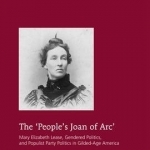
The 'People's Joan of Arc': Mary Elizabeth Lease, Gendered Politics and Populist Party Politics in Gilded-Age America
Book
The 'People's Joan of Arc': Mary Elizabeth Lease, Gendered Politics and Populist Party Politics in...
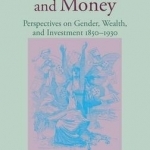
Men, Women, and Money: Perspectives on Gender, Wealth, and Investment 1850-1930
David R. Green, Josephine Maltby, Alastair Owens and Jannette Rutterford
Book
The late nineteenth and early twentieth centuries witnessed significant developments in the...

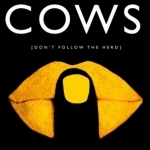
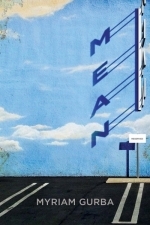
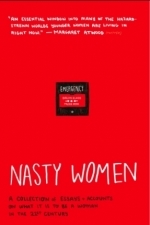
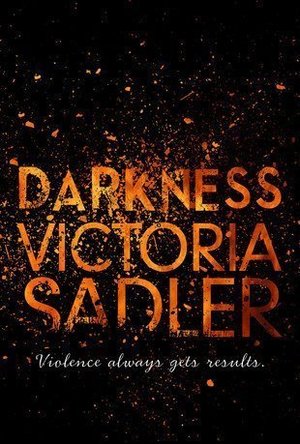
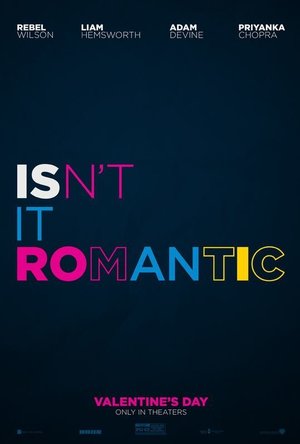
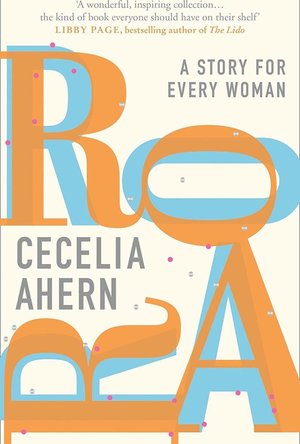
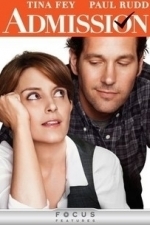
Sarah (7800 KP) Dec 17, 2020
Darren Fisher (2465 KP) Dec 21, 2020